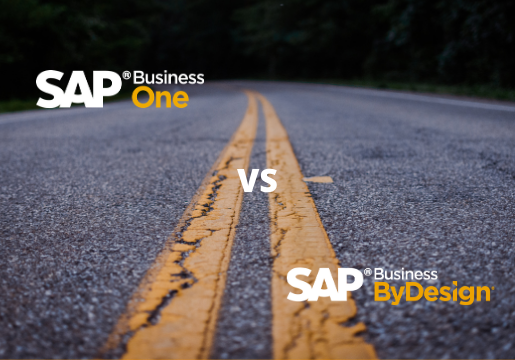The annual SAP SapphireNow returned in 2021 in a new virtual event format, due to the COVID-19 pandemic. The South East Asia leg of the business and technology conference ran from 21 to 24 June, offering sessions across eight industry and line of business tracks from industry experts and customers of SAP.
As one of the top SAP Business One partners in Singapore, we're always keen to share with our customers and prospects what SAP has in store -- and 2021 has been no different.
Here are our favourite highlights from three of the most interesting sessions across the entire event.
IT Track - Leading With IT Lessons From Singapore's First CIO
.png?width=1000&name=Prof%20Alex%20Siow%20(1).png)
Pictured: Professor Alex Siow, School of Computing, NUS. Source: SAP SapphireNow
Professor Alex Siow, from the School of Computing in the National University of Singapore (NUS) first began his career as a civil structuring engineer in the Housing and Development Board (HDB), before moving up the ranks to become its Chief Information Officer (CIO).
Professor Siow then left the public sector after 35 years to take up a role as Starhub's CIO and subsequently as a director in Accenture.
Prof Siow's on Transformational IT Leadership & CIO Challenges
Transformational Leaders Need Top-line Focus and Credibility
“All revenue comes from customers. Therefore, if the CIO doesn’t have a top-line focus, he won’t be able to think about what the customer needs, the customer journey, and the customer’s lifetime loyalty to the company."
Investment in IT involves a lot of money. It is therefore important for the CIO as a custodian of this investment to make all of it work... If the CIO does not have credibility, it is very difficult for the business leaders to believe that you are going to help them to improve their business.”
Transformational Leaders Need Impact and Flexibility
“Transformation leadership must make an impact to the organisation. If it’s just more of the same or incremental improvement, then I say this is not transformational.”
“IT has to follow the business, because if the circumstances in the world changes, we have to be adaptable. We cannot tell COVID-19 ‘sorry, we’re in the midst of implementing a system, can we hold off first?’”
CIOs Face Challenges on: Digitalisation and Analytics
“Digitalisation of business processes still remains a challenge for large companies. Although IT has been around for many years, there are still many business processes which are manual.”
“Data analytics present an opportunity and a threat. Just because you have plenty of data, it does not mean you are superior. It’s how you use the data and how you keep them safe for your customers.”
CIOs Face Challenges on: Security and Roadmapping
“Data security will always be a top priority, because the more people work from home, the more new systems will be implemented, and therefore more vulnerabilities.”
“Finally, technology roadmapping is essential, because technology is coming to us fast and furious. How do we know which technology we are supposed to adopt?”
Procurement Track - Fit For The Future: Procurement's Digital Evolution
.png?width=1000&name=Procurement%20(1).png)
Pictured from left to right: Chon Raman, Darrel Lim, David Hodge, Bambang Moerwanto. Source: SAP SapphireNow
In this session, Chon Raman – General Manager of Customer Engagement & Experience for SAP APJ – hosted a pane discussion with:
- Bambang Moerwanto, Vice President – Regional Head of FSI and Services Industries Cluster, APJ Industry Advisory SAP
- David Hodge, Director – Procurement Consulting, PwC South East Asia Consulting
- Darrel Lim, Assistant Vice President – Procurement, Genting Malaysia Bhd
The discussion covered the substantial role that the procurement function has to play in driving environmental, social and financial sustainability for organisations.
Here are some highlights:
Q: Where do you think procurement can assist with digitisation efforts to drive improvement?
Bambang: "Finance is shifting from back-office function to becoming the analytical hub of the organization thanks to the digitisation of the organisation. It’s defining the next target operating model, which includes procurement.”
“From the bottom line perspective, by having this digital transformation, the procurement department is able to connect themselves with the other value chains in the organisation.”
Q: What have been the biggest challenges in the last 18 months, and how did you overcome them?
Darrel: “The biggest challenge we had was the constant changes in response to the pandemic, and how we got our suppliers to be on board with these changes. There was introduction of new guidelines, SOPs, policies in which we required a supplier’s participation in order to make it successful.”
“To overcome these challenges, we had to improve our way of communication and increase the frequency of engagement with them. I’m really proud of my team, and the level of commitment they have given to achieve that level of suppliers compliance or SOP without interruptions to our supply.”
Bambang: “Because the supply chain got disrupted by the pandemic, it’s important for any organization that they look at the supplier risk as one of the criteria for them to select the right supplier, but also continue engagement with them.”
David: “A lot of people changed their priorities to cost reduction, and managing risk in the supply chain. People had to move in an agile way to realign with the goals of their organisations.”
“I think some of the challenges people faced in mobilizing towards that was skills and capability. That is a consistent problem we hear from current professionals across the region, probably followed closely by change management sponsorship.”
Q: What do you see around the region in terms of sustainability? How are organizations embracing this, in terms of procurement, but also the wider financial implications?
Bambang: “ESG rating is one of the criteria that any investment organizations or asset manager is looking at right now. The higher the ESG rating, much more resilience to the system increase
David: “Procurement is also seen as more of an important stakeholder than they were before in supporting the ESG agenda, probably partially accelerated by the role of the function during the COVID-19 crisis.”
Q: What does the next 18 months to 2 years look like? What excites you about the future?
Darrel: “I would like to focus my energy into upskilling employees, giving them a reason to be procurement specialists. My vision for the team is to be best-in-class centralised procurement centre.”
“We aim to provide superior services with cost-effective and innovative solutions, in partnership with our stakeholders to contribute towards Genting Malaysia Berhad’s vision and goals, and we aim to achieve this within the next 3 years.”
David: “P2P automation in particular is sort of the basis and backbone of automation of the procurement function that helps with anything, from quality of data management to supporting the risk management process. I think procurement has to get much more involved and more deeply entrenched in understanding their supply chains than they ever have been before.”
“There is some exciting stuff happening in the digital world as well: things like collaboration networks, continued use of RPA and increased use cases, some great use cases for chat boxes as well, and the use of AI to detect our spending patterns.”
Bambang: “By 2025 the B2B and B2C marketplace will be the most dominant ecosystem platform which will drive this revenue. Supplier collaboration and the innovation around that will be prominent in the next 18 months.”
Finance Track - Finance And Its Role in Accelerating Digital Transformation
.png?width=1000&name=Finance%20(1).png)
Pictured from left to right: Amit Verna, Rizza Eala. Source: SAP SapphireNow
This fireside chat session between Amit Verna – Regional Director of the Office of CFO Solutions in SAP Asia Pacific & Japan, with Rizza Eala – CFO of Globe Telecom Inc, covered how the finance function is leading business transformation in today’s world, and how CFOs are playing a pivotal role in steering the business in their digital transformation efforts.
Here are the highlights:
Q: Given the days we are in, that most of our teams are working from home, how are you managing your book closing?
Rizza: “The fact that we had the tools allowed people to be more committed, because they felt that Globe was protecting them by allowing them to work from home and deliver their SLAs, while not being scared about contracting the virus.”
“There was a lot of pride internally that despite the pandemic, we were able to support all our customers nationwide.”
Q: I’m hearing from various CFOs that they are looking at RPAs, machine learning, and artificial intelligence to make sure that can further optimise their costs. What exactly are your plans that you’d like to share with us?
Rizza: “Eliminating the manual process is really key. To give you an example, before all of these investments we had an organisation of about 650 people. But with the automation, we’ve been able to reduce our headcount to 450.
“Without the investments and automation, we would not be able to work from home, and it would expose most of our employees to the virus. Automation and proper planning help us address the concerns of the pandemic without major hiccups.”
“And in the end, it was providing an environment that allowed the teams to feel safe and secure working in their homes, boosted their morale and at the same time, help overcome personnel challenges.”
Q: Do you have a piece of advice that you would like to give to the CFOs? What is the best way to carry out the digital transformation of the finance function?
Rizza: “My advice is first, look at where you want to go, look at what’s available, look at the processes that need to change, and then engage the people. So that there’s an end-to-end view, and that buy-in and support comes not only from the top, but across the organisation.”
“If there’s any advice I would give, it’s that we are at the stage that there’s really constant change, and digitalisation is at the forefront, and customers are asking for it, and we also need to be more proactive. So it’s a combination of platforms, data, insights, and in the end, how can we increase the overall market value of the enterprises that we are running or that we are working for.”
Lessons From Industry Experts And SAP's Customers
While digital transformation has been an increasingly common theme for businesses over the past few years, these stories have highlighted how the COVID-19 pandemic has put many of these efforts into overdrive.
And by seeing how these businesses have succeeded in adapting to the new normal through the digitalistion of your processes, you can gain some useful insights on how you can apply these lessons to your own business as well.
If you're interested in applying the lessons learned from these sessions in the conference and commence with the transformation of your business, the first step you should take is to acquire a solution that can provide you with a strong digital foundation such as SAP Business One.
As the only 7-time Top SAP Business One Gold Partner in Singapore, we at AFON will be glad to assist you with that. Do give us a call at +65 6323 0901, or get in contact with us here.
Banner image source: SAP. (2021). 1616150150577 [Image]. https://www.sap.com/uk/about/events.html



